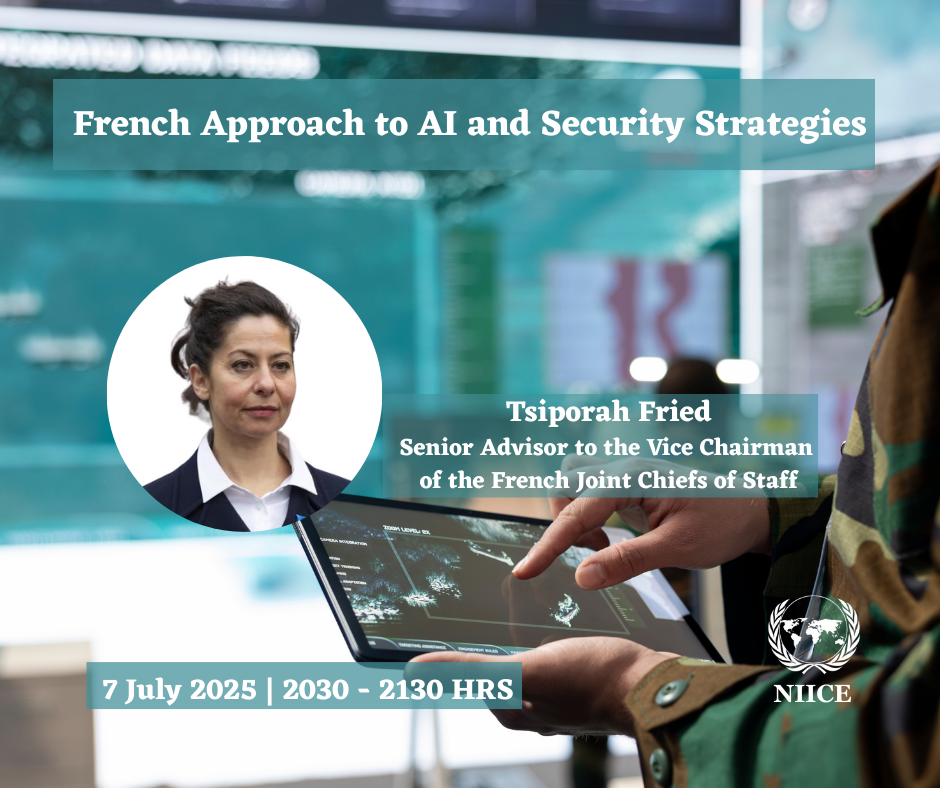
French Approach to AI and Security Strategies
Event Report:
On July 7th, the Nepal Institute for International Cooperation and Engagement (NIICE) hosted the webinar on "The French Approach to AI and Security Strategies" The event was witnessed by representatives from various diplomatic missions and security agencies. Ms. Tsipora Fried, the Senior Advisor to the Vice-Chairman of the French Joint Chiefs of Staff, provided a full-spectrum analysis of how defense technologies have evolved and been revolutionized, emphasizing the role of AI-driven advancements.
Ms. Fried underscores the critical role of software systems that are first rigorously tested through advanced computing simulations before deployment in defense, particularly for functions such as GPS positioning and navigation. This test-before-use model not only ensures operational reliability but also accelerates integration into strategic military frameworks. She highlights how defense capabilities are poised for a significant transformation driven by three key parameters: the emergence of new application features, rapid advancements in connection speeds, and the proliferation of AI-enabled unmanned systems. Together, these elements are catalyzing a revolution in military capacities, reshaping everything from weapon systems to command-and-control infrastructures. A major outcome of this shift is the reduction in the number of personnel required aboard aircraft, naval ships, submarines, and even in command posts, as automation and remote operation capabilities take precedence. At the heart of this transformation lies the doctrine of network-centric warfare, a concept deeply rooted in telecommunication breakthroughs, satellite communication, standardized computing architectures, and increasingly autonomous processing systems. These interconnected developments are laying the groundwork for a more automated, responsive, and integrated battlefield environment.
This shift is further enhancing acceleration in the military decision-making loop, as demonstrated by the deployment of drones in operations against the Houthis during the Red Sea crisis, where rapid response and precision were key. Notably, where a similar ship would have required around 250 sailors fifty years ago, today it operates with just 110 personnel, reflecting the impact of automation and AI-driven systems.
Ms. Fried also outlined the continuity in France’s national AI strategy, beginning with the 2017 plan introduced by President Macron, which focused primarily on civilian applications and brought AI to the forefront of national policy discussions. This was followed by a second strategy in 2018, and most recently, an updated strategy released in 2024. While the first laid the groundwork, the subsequent strategies expanded the lens to include implementation mechanisms and sector-specific priorities.
The presentation concluded with an engaging Q&A session, where participants explored various insightful themes, including case studies on France’s investment in civilian AI innovation and the evolving interface between technological development and policy frameworks.

Recent Comments